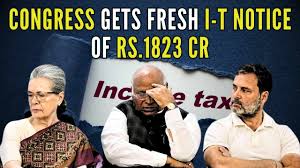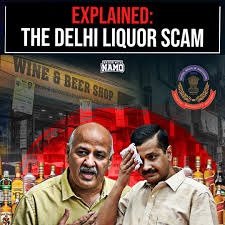SC REFUSES RELIEF TO PERSONAL GUARANTORS UNDER BANKRUPTCY CODE
The Supreme Court on Thursday upheld key provisions of the Insolvency and Bankruptcy Code (IBC) including appointment of the resolution professional, denying relief for a set of personal guarantors who had challenged sections of the law.
The court was ruling on 350 petitions by personal guarantors, including by Reliance ADA Group chairman Anil Ambani, challenging the constitutional validity of several provisions of the IBC concerning personal guarantors, including sections 95 to 100.
The main contention of the petitioners was that the personal guarantor was not given the chance to argue their position, contest the launch of the insolvency resolution process, or object to the designation of the resolution professional.
The petitions also claimed a lack of due process in these IBC provisions. The top court ruled that IBC is not retroactive and held that Sections 95 to 100 cannot be deemed unconstitutional simply because they do not give personal guarantors a chance to be heard before creditors’ insolvency petitions are admitted against them and because the moratorium is automatically imposed upon them at the time the insolvency petition is filed.
The controversy goes back to 2019 when amendments to the IBC allowed banks to take personal guarantors to the insolvency court and impose a moratorium on the sale of their assets.
A three-judge bench led by Chief Justice D.Y. Chandrachud also rejected the petitioners’ claims that these provisions ran against the principle of natural justice.
The applicability of principles such as natural justice, the court ruled, depends on the situation and cannot be applied in a one-size-fits-all manner. The court also clarified the role of the resolution professional that of a facilitator and not of an adjudicator, adding that their findings are not binding on the tribunals.
During the hearing, senior lawyer Abhishek Manu Singhvi, representing the petitioners, argued that there was a lack of due process in Section 95 of the IBC, which allows a resolution professional to be appointed without a formal hearing. He called for incorporating principles of natural justice, highlighting concerns about privacy and rights. He argued that the automatic initiation of interim moratorium and the appointment of an RP should require judicial scrutiny, as these actions are irreversible under Section 100, where a judicial body finally hears the guarantor.
In response, solicitor general Tushar Mehta, representing the government, argued that the timing of applying natural justice principles was crucial. He stressed the need for time-bound processes in the IBC to address financial issues and highlighted that section 7 of the IBC relates only to corporate entities, with no adverse consequences in the initial stages of section 95.
Lawyers welcomed the judgment.
“The judgment brings great relief to lenders as it allows lenders to recover the portion of debt which had not been recovered in the corporate insolvency resolution process of the principal debtor through the insolvency resolution of the personal guarantor,” said Anoop Rawat, partner, Shardul Amarchand Mangaldas & Co.
In the first three quarters of FY23, the National Company Law Tribunals (NCLTs) have admitted 117 cases against personal guarantors, compared with 28 in all of FY22 and nine in FY21, according to the Insolvency and Bankruptcy Board of India. Creditors and lenders have filed 428 such cases during the initial quarters FY23, claiming ₹32,765 crore of dues. In FY22, there were 913 such cases with claims of Rs. 65,222 crore through insolvency proceedings.
Intellex Strategic Consulting Private Limited
www.intellexconsulting.com, www.intellexCFO.com, www.economiclawpractice.com











